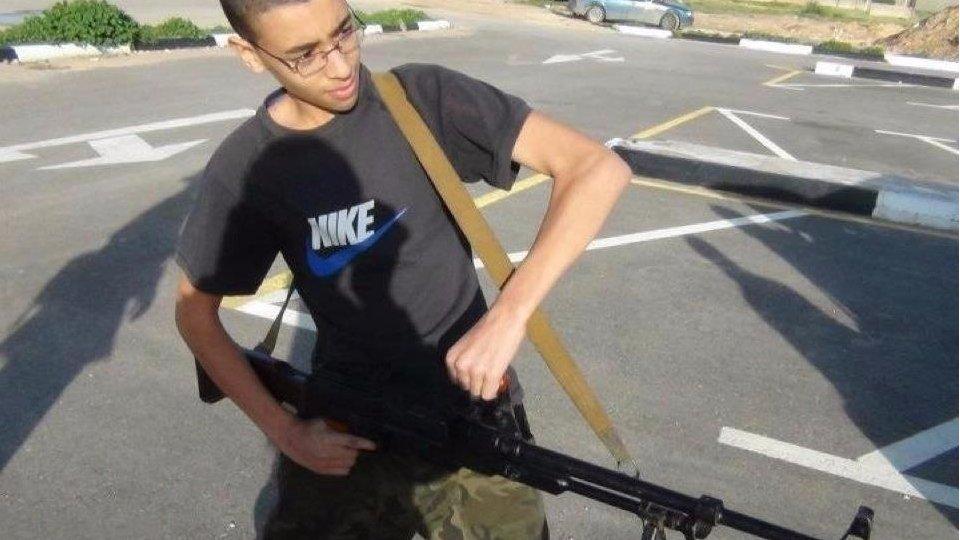Manchester response 'not as expected', counter-terror boss says
- Published
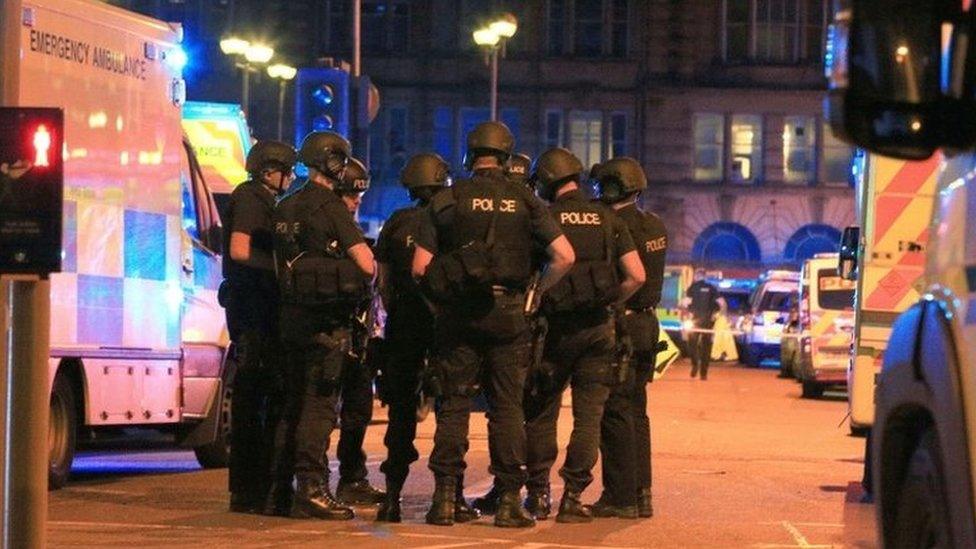
The public inquiry into the bombing is considering whether the attack could have been prevented
A counter-terror chief has expressed confusion over why police would declare a marauding terrorist firearms attack and not tell other emergency services, the Manchester Arena inquiry has heard.
Operation Plato was declared by a duty officer from Greater Manchester Police some 16 minutes after the 2017 bomb.
The inquiry has heard how the force did not initially inform other agencies.
Richard Thomas said he "struggled to foresee a set of circumstances" where this would happen.
Twenty-two people were killed and hundreds more injured when Salman Abedi detonated a homemade device as fans left an Ariana Grande concert at the venue.
Mr Thomas, from Counter Terrorism Policing HQ, agreed that communication to key agencies after Plato is declared was important.
He added the operation's aim is to achieve a "considered response from all three emergency services in order to give us the best possible chance to save life".
Mr Thomas told the inquiry local ambulance and fire service control rooms should be notified as soon as possible so all three services can activate contingency plans in a co-ordinated manner.

Twenty-two people were killed and hundreds more injured in the 2017 bombing
Counsel to the inquiry Paul Greaney QC asked him: "You don't seem to accommodate the possibility that it would ever be appropriate for a police commander to declare Operation Plato and then not tell the partner emergency services about it?"
Mr Thomas replied: "Yes, I struggle to foresee a set of circumstances where that would not be the case."
A joint "dynamic decision-making process" should follow, which leads to the identification of hot, cold and warm zones - depending on the threat - alongside an agreed tactical plan to treat and evacuate casualties, the inquiry heard.
Only one paramedic was at the scene of the bombing for the first 40 minutes after the explosion and that the first fire engine arrived more than two hours after the blast.
The inquiry continues.

Why not follow BBC North West on Facebook, external, Twitter, external and Instagram, external? You can also send story ideas to northwest.newsonline@bbc.co.uk, external
Related topics
- Published2 February 2021
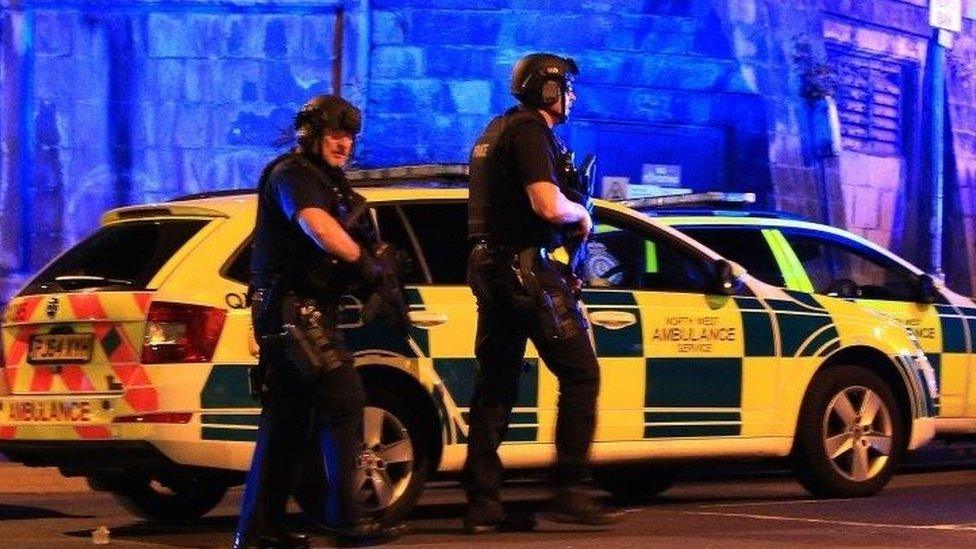
- Published1 February 2021

- Published26 January 2021

- Published25 January 2021

- Published20 January 2021

- Published19 January 2021

- Published18 January 2021
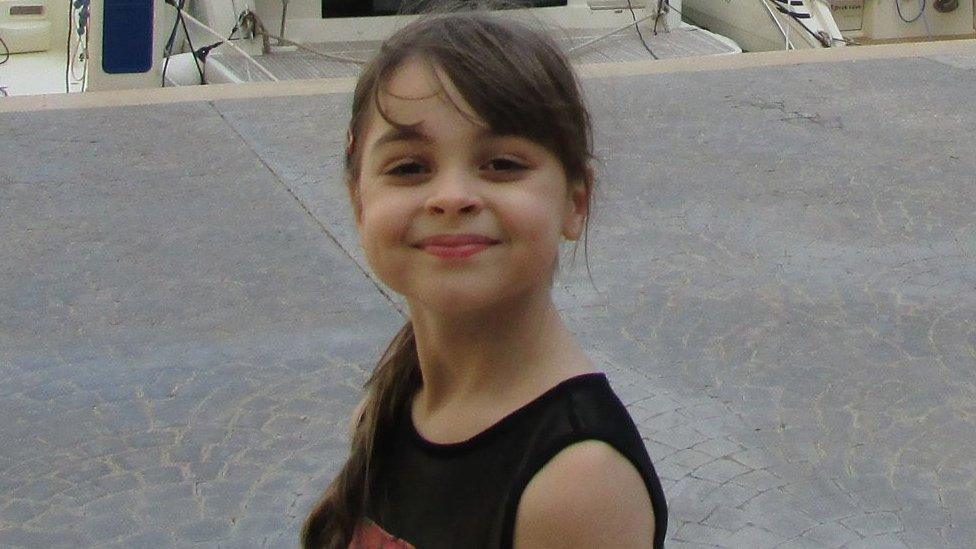
- Published3 November 2022

- Published7 September 2020
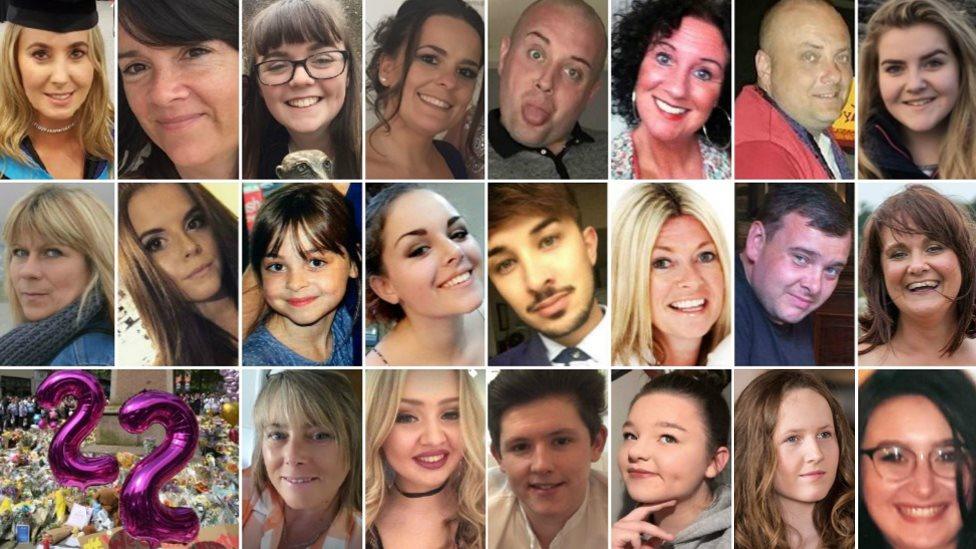
- Published17 March 2020
